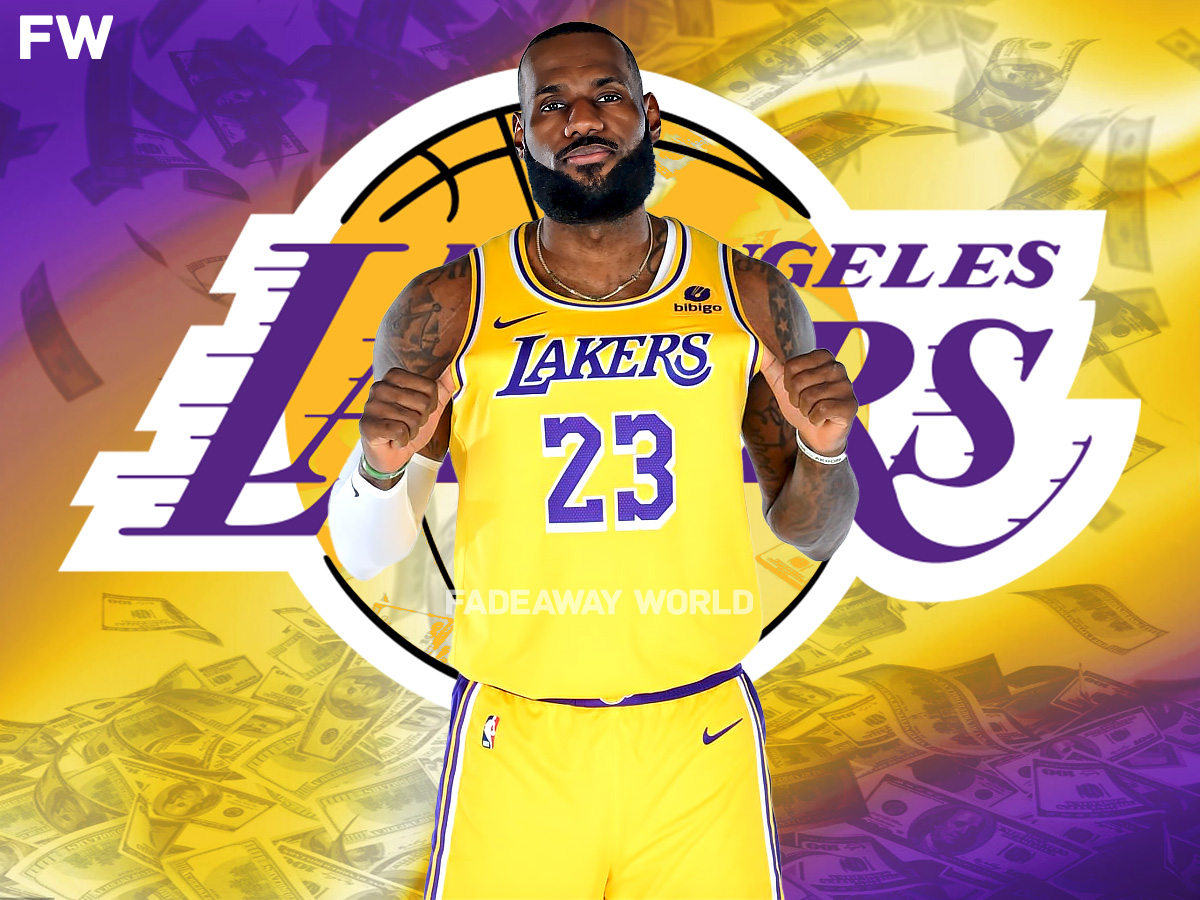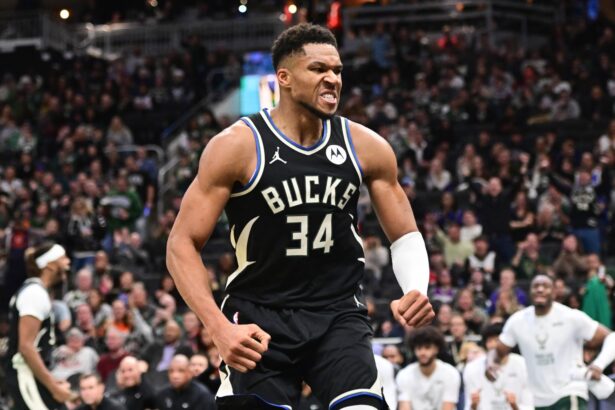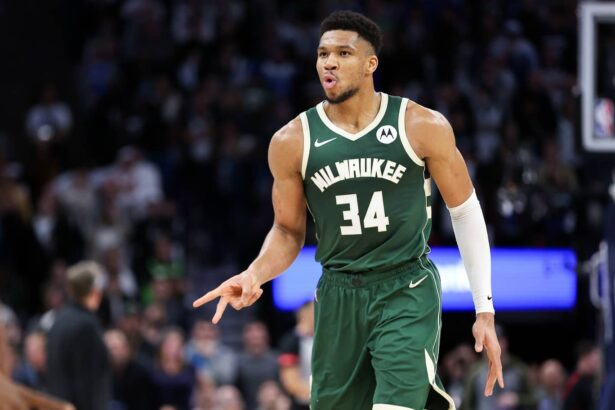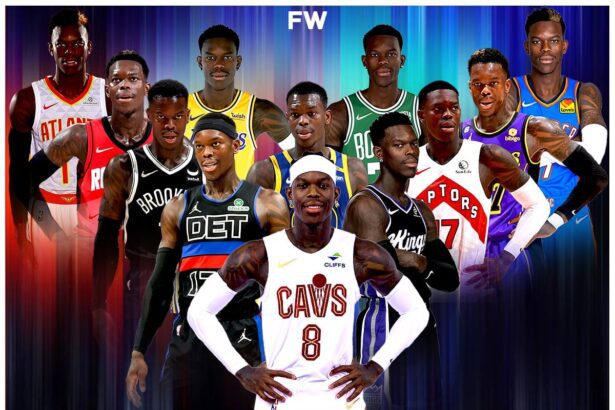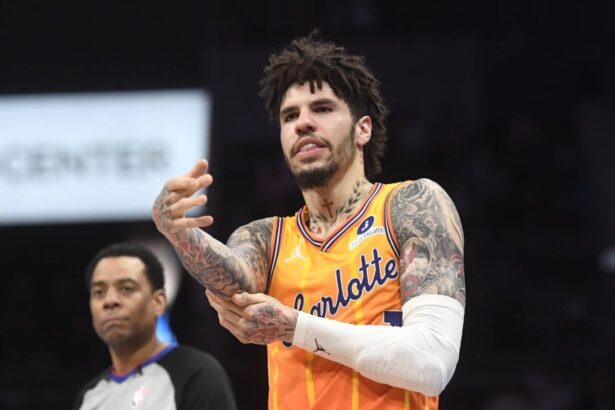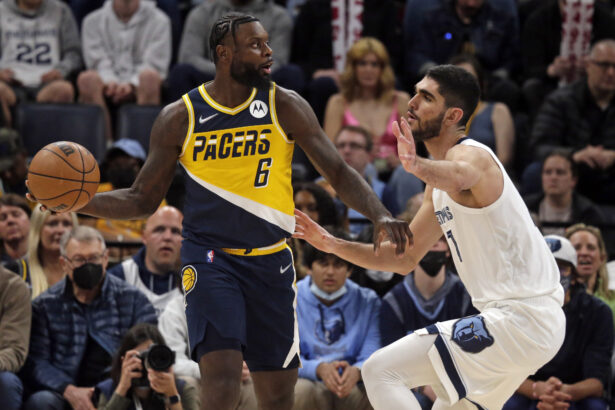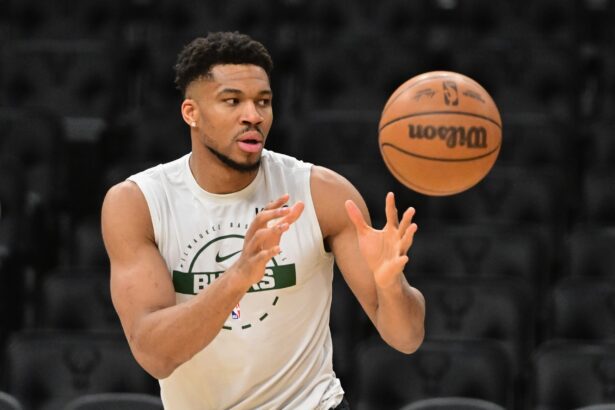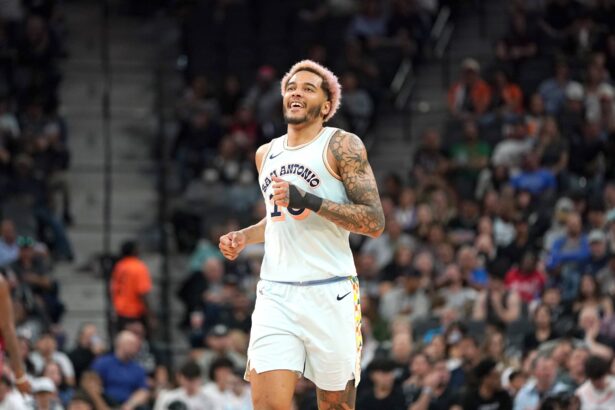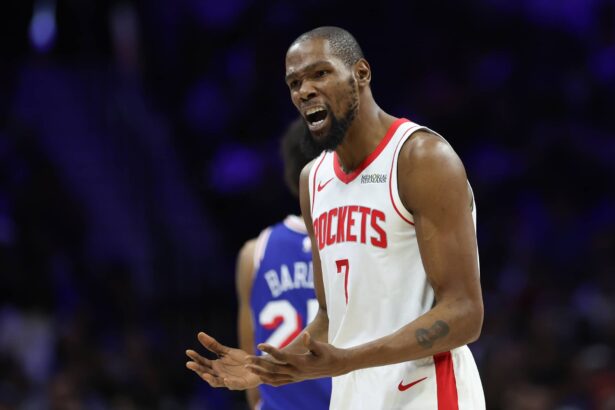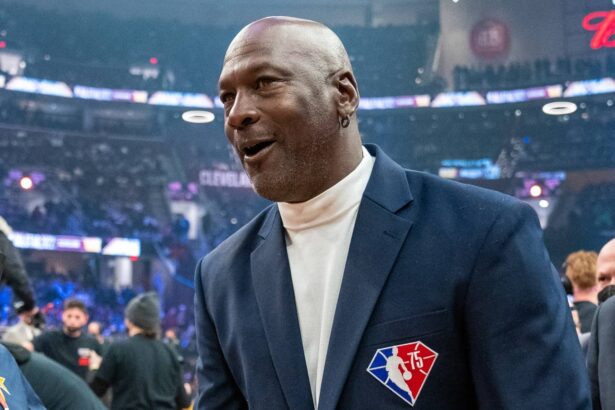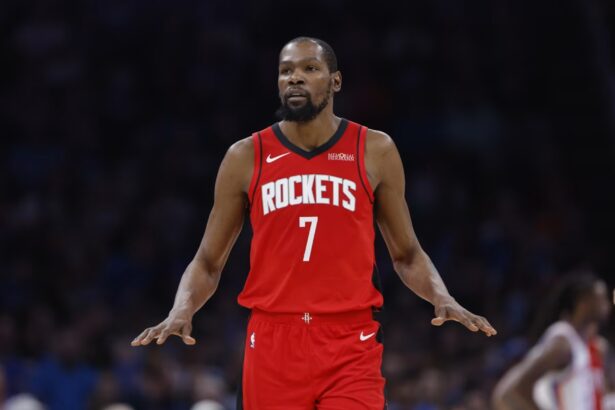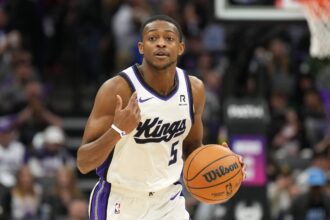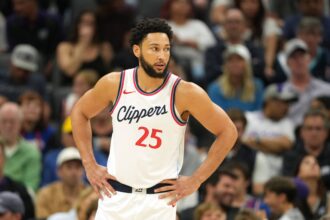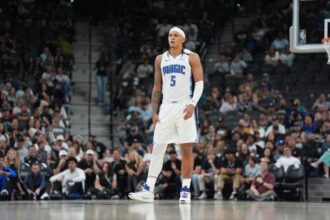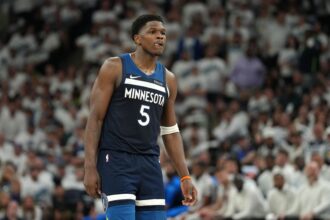In the latest free agency discussions, LeBron James is reportedly considering taking $1 million less than the maximum contract amount to help the Los Angeles Lakers manage their salary cap more effectively. Adrian Wojnarowski of ESPN first reported this development, emphasizing the ongoing conversations between LeBron’s agent, Rich Paul, and the Lakers.
The primary goal is to maintain a little more room under the second apron, allowing the Lakers to maneuver more freely in the free-agency market. This strategic move could potentially provide the team with some roster-building flexibility, keeping them just below the second apron, a crucial financial threshold.
However, Keith Smith provided a critical perspective on this potential move via X (formerly Twitter). Smith pointed out that while the gesture of taking $1 million less sounds commendable, it is a marginal adjustment in the grand scheme of things. Given the tight financial constraints, reducing James’s salary by $1 million represents only 0.5% of the second apron limit. This marginal reduction leaves the Lakers with minimal wiggle room for future moves.
Smith suggested a more impactful approach would involve salary-dumping one or more contracts into a team’s cap space or exceptions. This would create significant flexibility for the Lakers to make more substantial roster adjustments. The current financial situation indicates the Lakers are approximately $12 million over the first apron and $1.2 million over the second apron, even considering Bronny James’ rookie minimum contract.
Further complicating the situation is D’Angelo Russell’s $700K unlikely bonus, which contributes to the tight margins the Lakers face. With the current roster and contracts, the Lakers are $19.3 million over the tax, $12 million over the first apron, and $1.2 million over the second apron. This financial setup restricts their ability to make trades that aggregate player salaries or take back more money than they send out in trades.
Bobby Marks added another layer of complexity by explaining that for the Lakers to access the $12.8 million mid-level exception (MLE), they would need to clear at least $25 million in salary. This is because signing a player to the MLE triggers the $178.1 million first apron, adding further constraints to their financial flexibility.
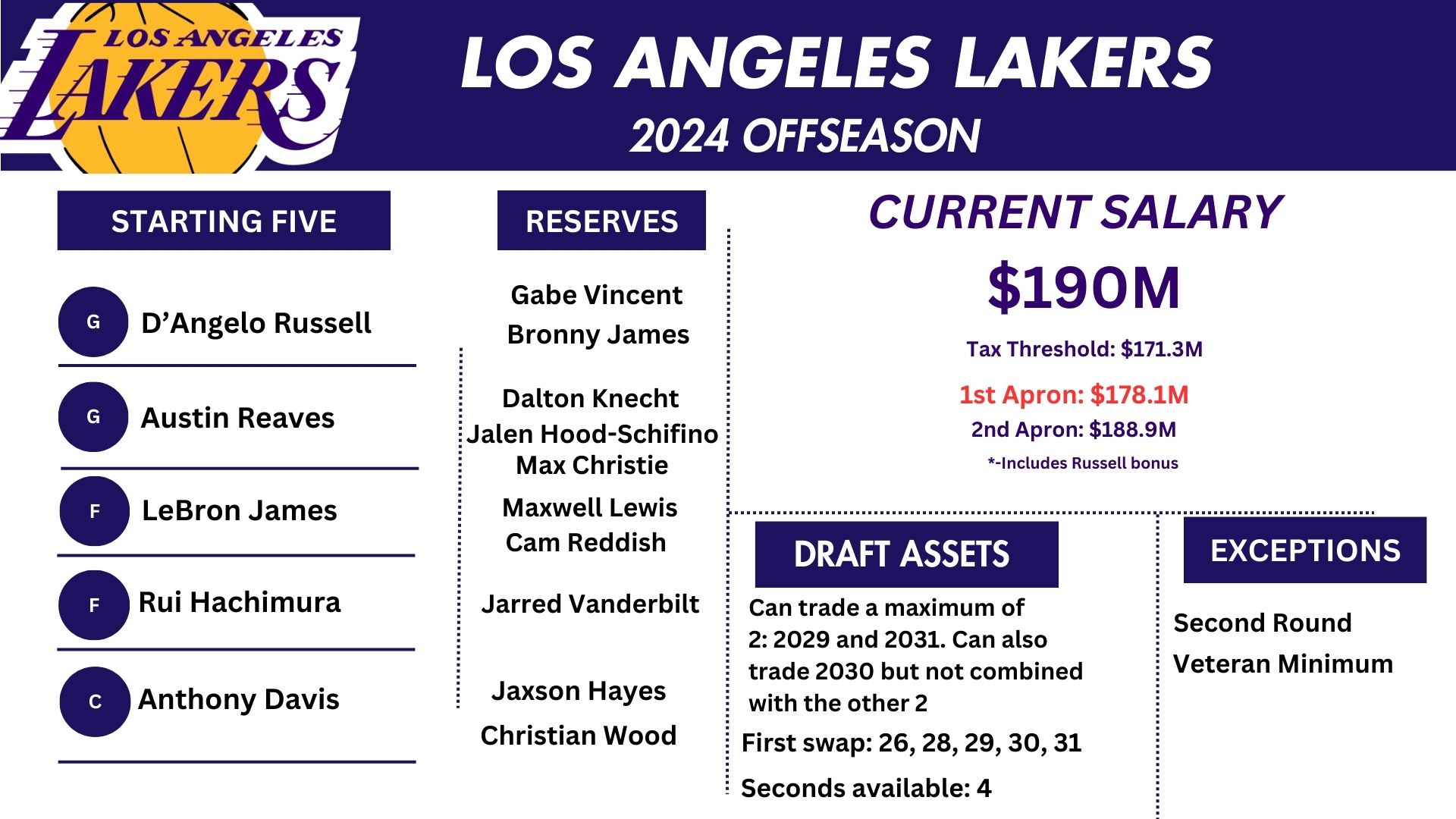
The introduction of the second apron this offseason has introduced stringent curbs designed to prevent teams from accruing massive luxury tax bills and simply paying their way out. Consequently, several teams, including the Lakers, have been keen to avoid crossing this financial threshold.
The Lakers’ current predicament suggests they need to make significant moves to achieve the desired financial flexibility. This could involve offloading certain contracts and making strategic trades to realign their salary cap situation.
While LeBron’s willingness to take a slight pay cut is a step in the right direction, the Lakers will need to undertake more comprehensive financial adjustments to build a championship-contending roster while staying within the league’s financial regulations.
The Lakers Front Office Failed To Utilize A Golden Opportunity
The Lakers front office, led by Rob Pelinka, once again failed to capitalize on a golden opportunity. LeBron James had generously offered to take a significant pay cut to provide the Lakers with the financial flexibility needed to land an impact player, one who could potentially help them in their quest for another title.
However, within just 48 hours of the free agency period, the Lakers missed out on key targets Klay Thompson, James Harden, and Jonas Valanciunas.
This series of missed opportunities led to LeBron’s patience running thin. Consequently, he opted to sign a two-year, $104 million extension, securing his financial future but limiting the team’s flexibility. This decision underscored LeBron’s frustration with the front office’s inability to secure top-tier talent despite his willingness to make personal financial sacrifices.
The Lakers’ front office seems to have placed their faith in maintaining continuity with the previous season’s squad. Only minor changes were made: Spencer Dinwiddie and Taurean Prince left the team, while the Lakers added two rookies, Dalton Knecht and Bronny James, through the draft. This minimal roster turnover indicates a belief in the existing core, despite evident shortcomings.
However, this approach raises significant concerns. The Western Conference remains highly competitive, and the Lakers’ current squad, as it stands, does not appear equipped to challenge the top teams. Running it back with essentially the same roster, with the only notable change being a new head coach, seems insufficient to address the gaps that were exposed in the previous season.
The Lakers’ inability to capitalize on LeBron’s willingness to take a pay cut represents a glaring missed opportunity. By failing to secure any of their top free-agent targets, the front office has left the team in a precarious position.
Without significant upgrades, the Lakers face an uphill battle in the Western Conference. LeBron’s frustration is understandable, as his hopes for a revamped roster capable of contending for a championship have been dashed. The Lakers’ management must now navigate the season with a squad that may struggle to keep pace with their rivals, highlighting a critical failure in their strategic planning.
Thank you for being a valued reader of Fadeaway World. If you liked this article, please consider following us on Google News. We really appreciate your support.

